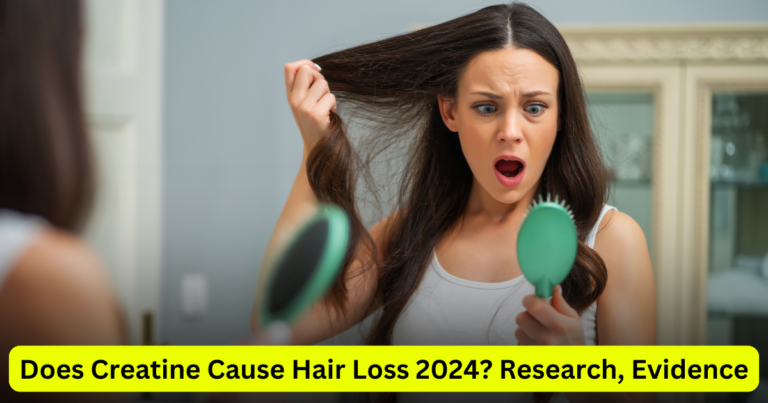Creatine, a popular supplement among athletes and bodybuilders, is primarily known for enhancing muscle strength, performance, and recovery. However, there has been ongoing debate about whether creatine causes hair loss. This concern stems from a 2009 study that linked creatine supplementation to increased levels of DHT (dihydrotestosterone), a hormone associated with male pattern baldness.

What the Research Says
The 2009 study, which observed male rugby players, found that creatine supplementation increased DHT levels during a loading phase. DHT is a derivative of testosterone, known to shrink hair follicles in those genetically predisposed to androgenic alopecia (male pattern baldness). However, this study had several limitations:
- Small Sample Size: The study only included 20 participants.
- No Direct Link to Hair Loss: The study measured hormone levels, not hair loss itself. None of the participants reported hair thinning during the study.
- Lack of Replication: Further research has not consistently replicated these findings, and many studies have found no significant changes in testosterone or DHT levels from creatine use(Verywell Health)(Byrdie).
Current Evidence
Despite the spike in DHT levels in the 2009 study, no research conclusively links creatine to hair loss. Most experts, including dermatologists and researchers, agree that creatine is generally safe for most individuals. The increase in DHT seen in the study stayed within normal clinical limits, meaning it was not high enough to definitively cause hair loss(Verywell Health).
Other Causes of Hair Loss
It’s important to note that hair loss can be triggered by various factors:
- Genetics: The most common form of hair loss, androgenic alopecia, is hereditary and largely influenced by genetics.
- Hormonal Changes: Hormonal imbalances, including fluctuations in DHT, can lead to hair loss, but this is typically a result of underlying genetic predisposition.
- Diet and Lifestyle: Poor nutrition, stress, and even certain hairstyles (e.g., tight ponytails) can contribute to hair thinning(Byrdie).
How to Prevent Hair Loss
While creatine itself may not be the culprit, maintaining a healthy lifestyle can help prevent hair loss. Key recommendations include:
- Balanced Diet: Protein-rich foods and essential vitamins (like A, E, and B) can support hair health.
- Scalp Care: Regular washing with mild shampoos and scalp massages with essential oils can improve circulation and reduce hair shedding.
- Stress Management: Stress is a known contributor to hair loss, so managing stress through relaxation techniques can be beneficial(Byrdie).
Conclusion
The link between creatine and hair loss remains weak and speculative. While one study suggested a potential rise in DHT, there is no strong evidence to support the idea that creatine directly causes hair thinning. For those concerned about hair loss, it’s important to consider other factors such as genetics, lifestyle, and overall health.
Read More
FAQs
- Does creatine cause hair loss?
- No conclusive evidence supports creatine as a direct cause of hair loss. The concern stems from a small study that linked creatine to increased DHT, but further research has not confirmed this.
- What is DHT, and how is it related to hair loss?
- DHT (dihydrotestosterone) is a hormone derived from testosterone, linked to male pattern baldness in individuals genetically predisposed to it.
- Can I take creatine if I have a family history of hair loss?
- If you’re concerned, consult a healthcare professional. While creatine hasn’t been proven to cause hair loss, individuals with a genetic predisposition might want to monitor their DHT levels.
- What are the common side effects of creatine?
- Some users report bloating, water retention, and gastrointestinal discomfort. Long-term, high-dose use may impact kidney function in individuals with pre-existing conditions(Verywell Health)(Byrdie).
- Is there any way to prevent hair loss while taking creatine?
- Maintaining a balanced diet, reducing stress, and caring for your scalp can help minimize hair shedding, whether or not you’re taking creatine.

